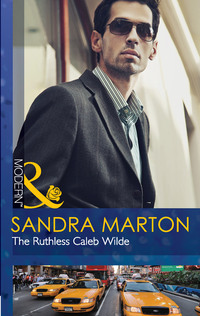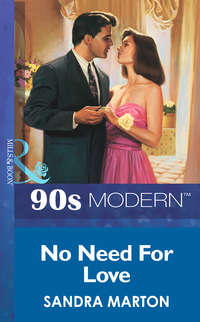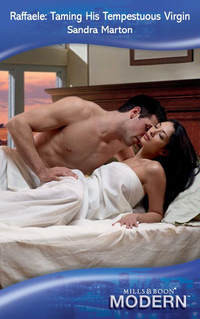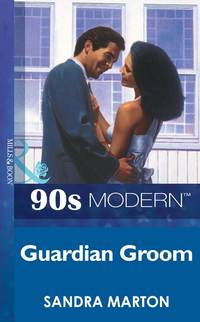
Полная версия
Nicolo: The Powerful Sicilian
“Okay,” Nick snapped. “I’ll give you two days. That’s it. Two days in Tuscany. Then I head home.”
Cesare held out the manila envelope. “Everything you need is here, Nicolo. Mille grazie.”
“Don’t thank me. Thank your wife for having eloped with a man unworthy of her forty years ago.”
Nick took the envelope, turned on his heel and walked out.
“Two days, Alessia,” Prince Vittorio Antoninni said. “That is all I ask.”
Alessia Antoninni kept her gaze on the moonlit grape vines that stretched toward the softly rolling Tuscan hills. It was fall and the vines, long since stripped of their fruit, seemed lifeless.
“I told you, Papa, I have work waiting for me in Rome.”
“Work,” the prince scoffed. “Is that what you call running around with celebrities?”
Alessia looked at her father. They stood on the verandah that spilled from the rear of the centuries-old villa that was her ancestral home.
“I work for a public relations firm,” she said evenly. “I do not ‘run around,’ I deal with clients.”
“Which means that handling public relations for your very own father should take you no effort at all.”
“It is not a matter of effort. It is a matter of time. I don’t have any.”
“Perhaps what you do not have is the wish to be a dutiful daughter.”
There were endless answers to that but the hour was late. Alessia decided to let the gauntlet lie where her father had thrown it.
“You should not have agreed to a visit from this American if you knew you would not be available for it.”
“How many times must I explain? Something’s come up. I cannot be here for Signore Orsini’s visit and it would be impolite to cancel it.”
“You mean, it would be dangerous to disappoint a gangster.”
“Cesare Orsini is a businessman. Why believe the lies of the tabloid press?”
“Your staff can handle things. Your accountants, your secretary—”
“And what of the dinner party I arranged?” The prince raised an eyebrow. “Would you have my housekeeper assume the role of hostess?”
“I have not been your hostess for years. Let your mistress play the part. She’s done it before.”
“Signore Orsini was born in this country.”
“He was born in Sicily,” Alessia said, with all the disdain of a Tuscan aristocrat.
“And Sicilians often cling to the old ways. Being entertained by my mistress might offend him.” The prince’s eyes turned cool. “Did you expect me to deny that I have a mistress? You know of your mother’s condition.”
Alessia looked at him in disbelief. “My mother is in a sanatorio!”
“Indeed.” The prince paused. “A very expensive sanatorio.”
Something in her father’s tone sent a chill down Alessia’s spine. “What are you saying?”
The prince sighed. “Without an infusion of capital, I am afraid I will have to make some difficult choices. About your mother and the sanatorio.”
“There are no choices.” Alessia could feel her heart pounding. “There is the sanatorio, or there is the public hospital.”
“As you say, my dear. There is the one—or there is the other.”
Alessia shuddered. She knew he meant it. Her father was a man with no heart.
“I see the condemnation in your eyes, daughter, but I will not lose what has been in our family for five centuries.”
“You should have thought of that before you brought the vineyard to the edge of bankruptcy.”
The prince made an impatient gesture. “Will you do as I ask or not?”
Was there a choice? Alessia thought bitterly.
“Two days,” she said. “That is all I can give you.”
“Grazie, bella mia.”
“A blackmailer does not thank the person he blackmails, Papa.”
It wasn’t much of a rejoinder, she thought as she went into the villa, to the room that had once been hers, but it would have to do.
Chapter Two
THERE was no woman waiting in Nick’s bed, but she’d left a note.
Call me.
Nick sighed and tossed the note aside. He’d call, but not until he’d returned from this pointless trip. Call, send flowers and say goodbye. It was definitely time to end things.
He stripped off the tux, showered, put on a set of well-worn Marine Corps sweats and went into the kitchen. It was a decorator’s dream but he pretty much used it only for making a sandwich or a pot of coffee, as he was now, spooning the stuff into a French press, putting the kettle on to boil, then settling in to wait.
The more he thought about it, the more certain he was that he’d been suckered into going to Italy. That story about his mother…Even if it were true, and that was a stretch, why would his father have waited forty years to give her, as he’d put it, a little bit of Tuscany?
Not that it mattered.
He’d said he would do this thing. A man was nothing if he broke his word.
The kettle whistled. Nick made the coffee, gave it a few minutes, then poured some into an oversized mug. Too much champagne or maybe too much Cesare. Either way, a couple of sips and he felt the caffeine kicking in as he emptied the contents of the envelope his father had given him onto the polished stone counter.
He picked up a document, read a couple of paragraphs, then shook his head in dry amusement. He was due to meet with Prince Vittorio Antoninni the next day.
“Would have been nice if you’d consulted me first, Father,” he muttered, but a quick meeting would serve his purpose. The sooner this was behind him, the better.
He drank a little more coffee, then reached for the phone. The Orsini jet was taking Falco and his bride on their honeymoon. No problem. The company used a travel agent; Nick had the guy’s home phone number. It was one of the perks of doing seven figures worth of business with him every year.
To his surprise, there were no nonstop flights from Kennedy Airport to Florence. He would have to change planes in Rome. That meant the travel time would be longer than he liked, but still, two days for this would be enough. He arranged for a first-class ticket that would get him into the city by 2:00 p.m., arranged for a suite at the Grand Hotel and a rental car he’d pick up at the airport.
Okay.
Nick punched a speed-dial number, ordered pad thai from a little place a few blocks away. While he waited for it to arrive, he went through the rest of the Antoninni Vineyard papers, but he learned little more than he already knew. The Antoninni family had owned the land and the winery for five centuries. Prince Vittorio had taken over from his father; his daughter would eventually take over from him, though she seemed disinterested in anything to do with business.
Alessia Antoninni was a party girl. She called herself a publicist but she spent her time in Rome, running with a fast crowd of people too rich for their own good. He knew what she was like without half-trying. Self-centered. Self-indulgent. And bored out of her empty mind. New York was filled with young women like her.
Not that it mattered to him.
His business was with her father. Without question, the sooner it was over with, the better.
There was a note in the envelope, on heavy vellum adorned with a royal crest. Signore Orsini was to telephone the prince’s secretary when he knew the exact time of arrival. The prince would not simply send a car, he would, himself, be at the airport to greet Signore Orsini. And, of course, Signore Orsini would be his guest at the Antoninni villa in the hills outside Firenze.
Nick made the call. It was the middle of the night in Italy by then so he ended up leaving a voice mail message in what he suspected was terrible Italian because he’d never picked up more than the basics, confirming he’d be arriving the next day, as planned, but omitting the time and flight information, and politely refusing the offer that he stay at the villa.
He preferred being on his own when he was checking out possible investment properties.
The bell rang. It was the doorman with the pad thai. Nick settled down with his dinner and his laptop and went through the Antoninni Vineyards paperwork again.
By midnight, he had lots of questions and not many answers. He could only hope the prince could provide them.
The prince, Nick thought, and laughed. This entire thing was like a bad joke.
Alessia paced the waiting area in the Peretola Airport, the last of her patience rapidly fleeing.
This was like a bad joke, she thought grimly. If only she could see enough humor in it to laugh.
The Orsini gangster had left a voice-mail message in the middle of the night. Did he not realize there was a time difference between America and Europe?
Probably not.
He was a hoodlum. He would have the IQ of a snail. The message was delivered in incredibly bad Italian. Delivered? Barked, was more like it, in Sicilian-Italian. Such a lower-class patois…but what else would such a man speak?
He had an interesting voice, she had to give him that. Low-pitched. Slightly husky. A young voice for an old man.
What counted was that the message was pointless. He would arrive today. Alessia bit back a snort of derision. Of course he would! That was the arrangement he had made with her father. Then there’d been something about hotel arrangements when he surely knew he would stay at the villa. As for his arrival time, the airline he was flying…
Nothing.
She’d had to waste time scanning for all the incoming flights that he could take from London or Paris or who knew where. She’d ended with a list of arrivals that ranged from early morning to this last one due in now, from Rome.
She had been pacing these grimy floors for hours. An entire day, wasted.
An unladylike word slipped from her lips. A nun, hurrying by, gave her a shocked look.
“You try putting yourself in my place,” Alessia said to the nun’s retreating back, and then she thought, I am losing my mind!
A message blinked on the arrivals board. Grazie a Dio! The plane from Rome had landed. Orsini had to be on it. Five minutes for the passengers to disembark. Ten for them to collect their luggage. Another ten to clear passport control…
Her feet were killing her.
She had worn Dior heels. Heels? They were more like stilts. Foolish to have done so but they went well with her ivory Armani suit. She had dressed with care, not to impress this Cesare Orsini but to remind him of who she was and who he was and if that seemed wrong, so be it. Heaven only knew what her father had led the man to think about this unholy deal, but since going to work in Rome, she had seen enough deals go sour to know that it was important to establish one’s position as soon as possible.
This gangster wanted to buy into the Antoninni Vineyards? She would set the rules. That was her right, now that her father had dumped the situation in her lap. And the first rule was that if it had been left to her, the American thug would never have thought to set foot on Tuscan soil.
Ah. Finally. The passengers from Rome were starting to trickle into the hall. A trio of priests. A middle-aged woman, wheeling a suitcase. Two teenaged boys with backpacks. A harassed-looking mother clutching a wailing child. An elderly man, leaning on a cane. A young couple, hands tightly clasped.
And a man.
Tall, dark-haired, impeccably dressed in what was surely a custom-made suit, his stride long and fluid, the look on his face one of such controlled anger that Alessia took an unthinking step to her left.
A mistake, because he took one to his right.
They collided.
No. Too strong a word. His body simply brushed hers.…
An electric shock seemed to jolt through her.
He looked at her. He must have felt the same thing, judging by the sudden narrowing of his eyes. Such dark eyes, the color of the strongest, richest espresso. The rest of his features were strong, too, she thought on a little inrush of breath. The narrow nose, with just the slightest dent near the bridge. The square jaw. The firm mouth.
It was a hard, masculine face. A beautiful face…
“Excuse me.”
Alessia blinked. The man’s voice was as cold and hard as his expression. And the words were a lie. “Excuse me,” he’d said, but what he meant was, “Why don’t you get out of my way?”
Her eyes narrowed, the same as his.
She took a step to the side. “You are excused,” she said, her tone as frigid as his.
His dark eyebrows rose. “Charming,” he muttered, and strode past her.
Charming, indeed. The rudeness of him! He had spoken in English; without thinking, she had answered in the same tongue. He was, without question, an American, and everyone knew how they were…
Wait.
Had there been something familiar in his voice? Deep. Husky. Silken, despite its sharpness…
A bustle of noise and motion jerked her back to the present. More passengers had just appeared. It was an interesting parade of humanity but when it ended, it had not included Cesare Orsini. There was no short, rotund figure wrapped in a dark overcoat, an old-fashioned fedora pulled low over his eyes.
To hell with this.
Alessia turned on her heel, marched through the terminal and out the exit doors. Her black Mercedes had acquired two more parking tickets. She yanked them from under the wiper blades, opened the car and tossed them inside.
Her father could deal with this nonsense.
She had had enough.
She got behind the wheel. Turned the key. Opened the windows. Started the engine. The Mercedes gave a polite but throaty roar. It had no effect on the pedestrians swarming past the hood. Crossing without acknowledging traffic was a game in Italy. Pedestrian or driver, you could not play if you showed fear.
Slowly, she inched the Mercedes forward. The crowd showed reluctance but, gradually, a narrow tunnel opened. Alessia pressed down harder and harder on the gas.…
And struck something.
She heard the tinkle of glass. Saw the crowd part.
Saw the broken taillight of the Ferrari ahead of her.
Dio, what now? she thought as the driver’s door flew open. A man stepped out, strode to the rear of the Ferrari—dammit, of all cars to hit, a Ferrari—looked at the shattered glass, then at her…
Cavolo!
It was him. The tall, dark-haired American. He didn’t just look angry, he looked furious. Alessia almost shrank back in her seat as he marched toward her. Instead, she took a long, deliberate breath and stepped from her car, her professional easing-the-tension smile on her face.
“Sorry,” she said briskly. “I didn’t see you.”
“You didn’t see me? Am I driving a slot car?”
She almost asked him what a slot car was and caught herself just in time. All she wanted was to get home—to the villa, which was not really home but would have to do—and kick off her agonizingly painful shoes, peel off her wrinkled suit, pour herself a glass of wine…or maybe two glasses—
“Well? Do you have anything to say for yourself?”
His tone was obnoxious, as if this were her fault. It wasn’t. He’d been parked in a no-parking zone. Yes, so had she, but what had that to do with anything?
“First you try to walk through me. Now you try to drive through me!” His mouth thinned. “Did you ever hear of paying attention to what you’re doing?”
So much for easing the tension. Alessia drew herself up. “I don’t like your attitude.”
“You don’t like my attitude?”
He laughed. The laugh was ugly. Insulting. Alessia narrowed her eyes.
“There is no point to this conversation,” she said coldly. “I suggest we exchange insurance information. There has been no injury to either of us and only the slightest one to your vulgar automobile. I will, therefore, forgive your insulting attitude.”
“My car is vulgar? My attitude is insulting, but you will forgive it?” The man glared at her. “What the hell is with this country, anyway? No direct flights from New York. A layover in Rome that’s supposed to take forty minutes and ends up taking three hours, three endless hours because some idiot mechanic dropped a screwdriver, and when I made a perfectly reasonable attempt to charter a private plane instead of standing around, killing time…”
He was still talking but she couldn’t hear him. Her thoughts were spinning. He had come from New York? A layover in Rome? A longer layover than planned?
“Do you speak Italian?” she blurted.
Stopped in midsentence, he glared at her as if she were crazy. “What?”
“I said, do you—”
“No. I do not. A few words, that’s all, and what are you, an adjunct to passport control?”
“Say something. In Italian.”
He shot her another look. Then he shrugged as if to say, Hey, why not accommodate the inmate? And said something in Italian.
Alessia gasped.
Not at what he’d said—it was impolite and it had to do with her mental state but who cared about that? She gasped because what he’d spoken was not really Italian, it was Sicilian. Sicilian, spoken in a deep, husky voice…
“Your name,” she whispered.
“Excuse me?”
“Your name! What is it?”
Nick slapped his hands on his hips. Okay. Maybe he’d stepped into an alternate universe.
Or maybe this was the old-country version of Marco Polo. Kids played it back home, a dumb game where they bobbed around in a swimming pool, one yelling “Marco,” another answering “Polo.” It made about as much sense as this, an aggressive, mean-tempered babe—if you could call her a babe and, really, you couldn’t—who had first tried to walk through him, then tried to run him down.…
“Answer the question! Who are you? Are you Cesare Orsini?”
“No,” Nick said truthfully.
“Are you sure?”
He laughed. That made her face turn pink.
“I think you are he. And if I am right, you’ve cost me an entire day.”
“Meaning?”
“Meaning, I have been here for hours and hours, waiting for your arrival.”
Nick’s smile faded. “If you tell me you’re Vittorio Antoninni, I won’t believe you.”
“I am his daughter. Alessia Antoninni.” Her chin jutted forward. “And, obviously, you are who you say you are not!”
“You asked if I was Cesare Orsini. I’m not. I’m Nicolo Orsini. Cesare is my father.”
“Your father? Impossible! I know nothing of a change in plans.”
“In that case,” Nick said coldly, “we’re even, because I sure as hell don’t know about a change in plans, either. Your father was supposed to meet me. If I’d let him meet me, that is, which I had no intention of doing.”
“I have no idea what you’re talking about.”
“That makes things even. I don’t understand anything you’re babbling about, lady, and—”
“Where have you been all these hours?”
“Excuse me?”
“It is a simple question, signore. Where were you while I paced the floor here?”
“Where was I?” Nick’s jaw shot forward. “In the first-class Alitalia lounge in Rome,” he said sharply. “And trust me, princess, it loses its charm after a while.”
“The title is no longer accurate.”
Nick looked Alessia Antoninni over, from her falling-apart chignon to her wrinkled Armani suit to the shoes she seemed to be trying to ease off her feet.
“Yes,” he said, “I can see that.”
She flushed. “I was expecting—”
“My father. Yeah. I get that part. What I don’t get is what you’re doing here. Where are your old man and his driver?”
“So. You admit you knew that someone would be waiting for you. And yet, you left no word of your arrival time, of the airline you would be flying. You did not spend so much as a second looking for my father or his chauffeur inside the terminal, and you did not trouble yourself to telephone the villa when you did not see them. If you had, someone would have called me.”
“Yeah, well, I’m sorry this didn’t go according to royal protocol, princess, but life doesn’t always do what you want.”
“I repeat, I am not a princess. And this has nothing to do with protocol. If you had left your arrival information as part of that useless voice-mail message—”
“If I had, your father would have met me. Or, as it turns out, you’d have met me. And I’m not interested in being taken by the hand and shuttled to your villa while somebody tells me how lucky I am to be given the chance to invest in what’s probably a disaster of a vineyard.”
“I thought it was your gangster father who would be investing. And to so much as suggest the vineyard is a disaster—”
Alessia caught her breath as Nicolo Orsini stepped closer. With him this near, she had to tilt her head back to see his face. Even in these shoes of medieval torture, he towered over her.
“I’m here as my father’s emissary,” he said in a cold, dangerous voice. “And I’d advise you to watch what you say, princess. Insult one Orsini, you insult us all.”
Nick frowned even as he said it. Where had that come from? Insult his brothers or, even worse, his mother or his sisters, and, of course, you insulted them all. But the old man? The don, who was part of something ancient and ugly and immoral? Was an insult to him an offense to all the Orsinis?
“Your father is what he is,” Alessia Antoninni said with dogged determination. “If you expect me to pretend otherwise, you are wrong.”
He looked down into her face. Her hair was an unruly mass of streaked gold, long tendrils dangling free of what had once been some kind of ladylike knot. Her eyes flashed defiance. There was a streak of soot on a cheekbone high enough to entice a man to trace his finger across its angled length.
The rest of her was a mess.
Still, she was stunning. He could see that now. Stunning. And arrogant. And she was looking at him as if he were beneath contempt.
His jaw tightened.
She had pegged him for the same kind of man as his father. He wasn’t—but something in him rebelled at denying it. She was an aristocrat; his father was a peasant. Nick had once delved into the origins of la famiglia, enough to know that though some scholars traced the organization solely to banditry, others traced it to the rebellion of those trapped in poverty by rich, cruel landowners.
It didn’t matter. Whatever the origins of his father’s way of life, Nick despised it.
Still, there was a subtle difference between viewing that way of life from the comfort of America and viewing it here, on such ancient soil. It brought out a feeling new to him.
“Your father is also what he is,” he said, his voice rough. “Or do you choose to forget that your vineyard was created by the sweat of others?”
“I do not need a lesson in socioeconomics! Besides, times have changed.”
“They have, indeed.” Nick smiled coldly. “You and your father must now come to me, an Orsini, to beg for money.”
Alessia stiffened. “The House of Antoninni does not beg! And you forget, we come to Cesare Orsini, not to you.”
She was right, of course. His only function was to report back to his father.…
“Why, signore,” she all but purred, “I see I have silenced you at last.”
She smiled. It made his belly knot. There were hundreds of years of arrogance in that smile; it spoke of the differences between commoners and kings, and in that instant, Nick knew the game had changed.
He smiled, too, but something in it made her expression lose a little of its upper-class defiance. She began to step back but Nick caught her by the wrist and tugged her toward him.
“There’s been a change in plans, princess.”
“Let go of me!”
He did, but only to slip his hand around the nape of her neck. Tendrils of the softest gold tumbled over his fingers.
“I’m the potential investor,” he said softly, “not my old man.”
“That is not what my father told me!”










